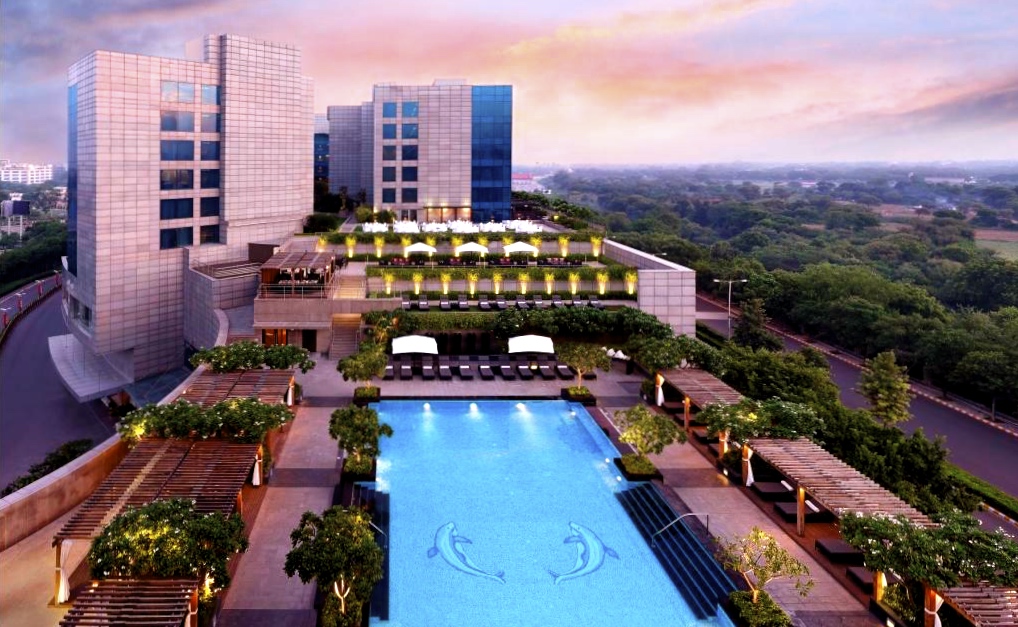How do you manage a thousand Indians? "Communicate openly and honestly, but also be strict," says Michel Koopman (55), who has been general manager of the super deluxe Leela Hotel in Gurgaon for two years.
The Leela in Gurgaon (Photo: The Leela)
Michel Koopman is a real hotel man. Since his first job as an errand boy in the Amsterdam Hilton, he has climbed up the hierarchy of five-star hotels all over the world. In recent years, he has managed the Grand Hyatt in Melbourne, the Hyatt Regency in Osaka and the Intercontinental in Shanghai, among others.
For two years, he has been running the Leela Hotel in Gurgaon, just outside the Indian capital New Delhi. He likes that very much. Koopman: "It's nice to work with Indians. The fact that they speak English of course helps enormously. It's quite a difference with China. If you make a joke there, they don't understand you. With Indians, you can laugh.
The culture is very different from that in China, Koopman notes. "China is a dictatorship; there, everything revolves around cooperation. I call it a we-culture. India, on the other hand, has an 'I' culture. Indians always ask themselves 'What's in it for me? They want to be treated with respect."
Moreover, Indians all have a clear opinion, Koopman states. "If you ask twenty Indians what a good Biryani is, you will get twenty different answers. The trick is to get everyone on board the same train." The key to this is good communication. "I communicate very openly and honestly, but I am also strict. We work in a clear format to achieve our goal: this hotel has to continuously improve."
Michel Koopman, General Manager, The Leela in Gurgaon (Photo: Leela)
Although the Leela Group is an Indian chain, Koopman tries to leave his mark on the culture. "My office is very accessible, anyone can walk in here. They are not used to that. I also have breakfast with a changing group of employees every month, I play in the Leela football team and take part in all kinds of sports tournaments with the staff." Still, hierarchy is important, Koopman acknowledges. "Indians have respect for older people, so it helps that I already have some grey hair."
The level of service in Indian five-star hotels is insanely high. Leela's motto is Atithi Devo Bhav which means 'The guest is god'. "Our Indian guests at home only have to snap their fingers or a servant will be standing in front of them. It sounds bizarre, but in our hotel they have relatively fewer staff than at home. That means they are very demanding in our hotel. That takes a lot out of my people." The difference with Leela's international guests is huge. "Foreign guests experience our hotel as a wonderful, luxurious bubble, away from the hustle and bustle outside our walls."
Koopmans notices the increasing prosperity in India by the increase of Indian guests. "Two years ago, 30% of Leela's guests were from India, now it is 60%. We see enormous growth in the demand for wedding and event venues and spas." The hotel industry is highly profitable. "We are running a turnover of 200 crores (over EUR 27 million) with a profit margin of 50%."
Interested in the Indian hospitality industry? We will gladly help you on your way!


